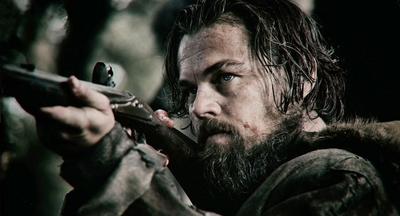
BY ZACHARY WIGON |
Under The Hood: 'Foxcatcher' and Late Character Reveals
'Foxcatcher' illustrates how powerful storytelling can force audiences to rethink characters late in the narrative.

(Spoiler Alert: If you haven't seen Foxcatcher yet, consider yourself warned - crucial plot details from the end of the film will be discussed below.)
Bennett Miller's excellent new film Foxcatcher does a number of things really well, but there's one particular aspect of the film's narrative that I'll be examining here. For the uninitiated - who, I presume, are heading into this spoiler-conscious - the film, based on a true story, examines the tripartite relationship between Olympic wrestler Mark Schultz, his brother Dave, and their patron and "coach," John du Pont, who subsidized the wrestlers' team while it was set up on his estate in Pennsylvania. As those familiar with the public record will be aware, du Pont ended up murdering Dave while the latter was living on his property, after the team's failed bid for OIympic glory in 1988.
Foxcatcher forces the viewer to reconsider the manner in which they typically assess film characters.
Du Pont is presented as a deeply complex individual from the start of the picture, a deeply socially awkward eccentric who has no real friends and longs for a sense of connection that his fabulous wealth seems to be isolating him from achieving. While du Pont is never a particularly likable character in the film, he's not entirely unsympathetic, as one can't help but pity his deep inability to communicate with other humans in any truly meaningful way - he's clearly viewed by those closest to him as a source of revenue and little more (with Mark perhaps being the one exception). Yet whatever sympathy for the troubled du Pont is not only tossed out, but is forced to be closely reexamined, after the film's climactic sequence, in which du Pont murders Dave in cold blood, with Dave's wife looking on.
What's powerful about this narrative device is that, for those viewers unfamiliar with the historical record, the climax comes as a reveal with respect to just how mentally troubled du Pont really is; it forces viewers to reexamine all that has come before in an entirely new light. Yes, it's clear from the start that du Pont is somewhat awkward, but until the murder he isn't presented as the sort of guy who is necessarily bound to do something as heinous as this. By having this turning point with respect to du Pont's character presented so late in the game, audience members are forced to recognize that they were sympathizing with an individual who was capable of horrific murder all along, which then forces those viewers to confront some uncomfortable questions: do murderers and madmen of all stripes deserve any sympathy, and if so, how much? Why? Just how many of us really are capable of such heinous acts of violence? Can we ever really know someone in real life, or understand the full capabilities of a character?
Late reveals are extremely powerful tools by which audiences are forced to confront acts of comprehension and sympathizing that rarely go unchallenged.
By throwing us off base with this late reveal, Foxcatcher forces the viewer to reconsider the manner in which they typically assess film characters. It reminded me, in that respect, a bit of Woody Allen's superb Match Point, which - spoiler alert, again - also leads viewers to sympathize with a character who, late in the film, is revealed to be capable of horrific murder. These late reveals are extremely powerful tools by which audiences are forced to confront acts of comprehension and sympathizing that rarely go unchallenged in most film viewing.

